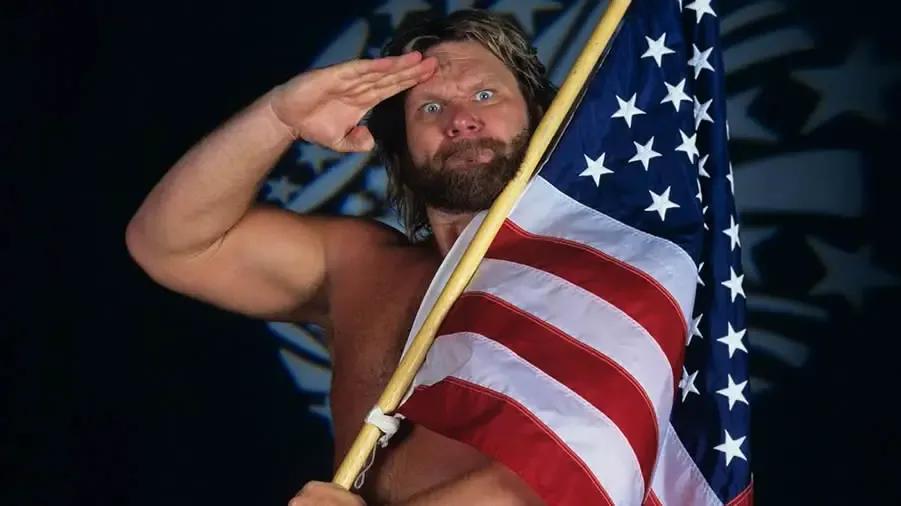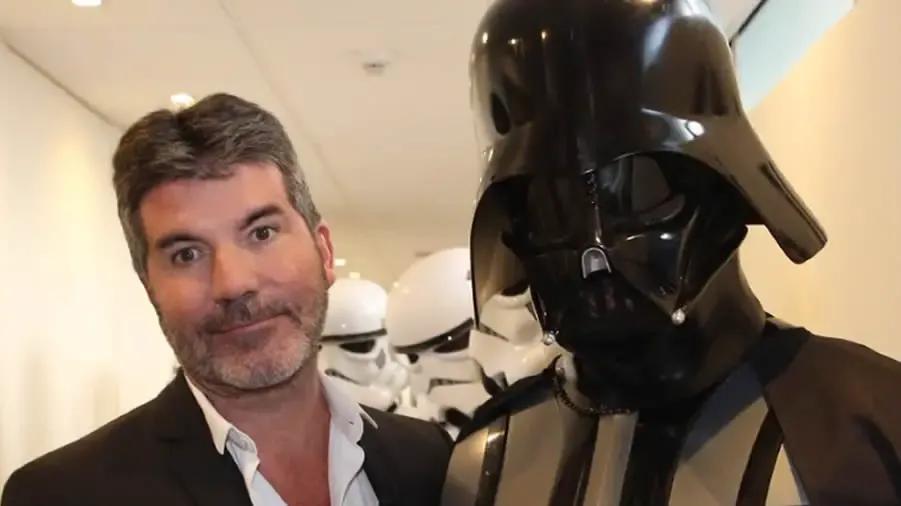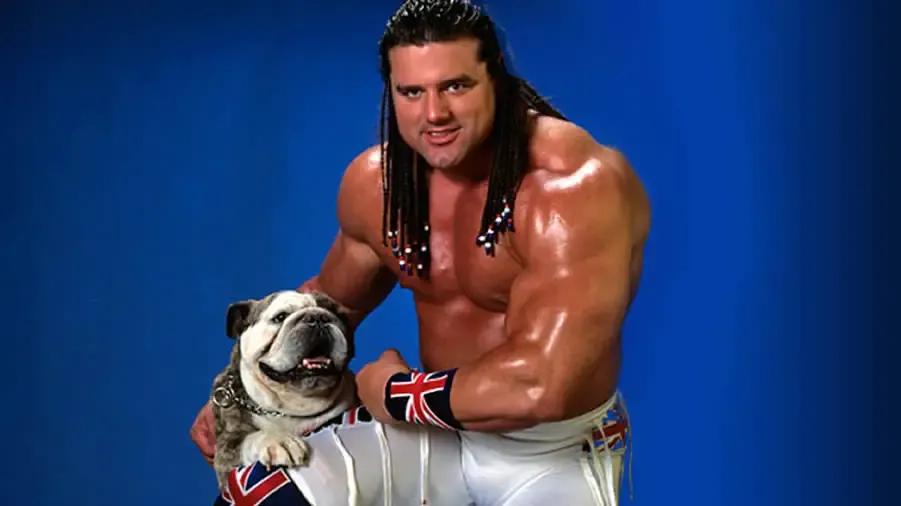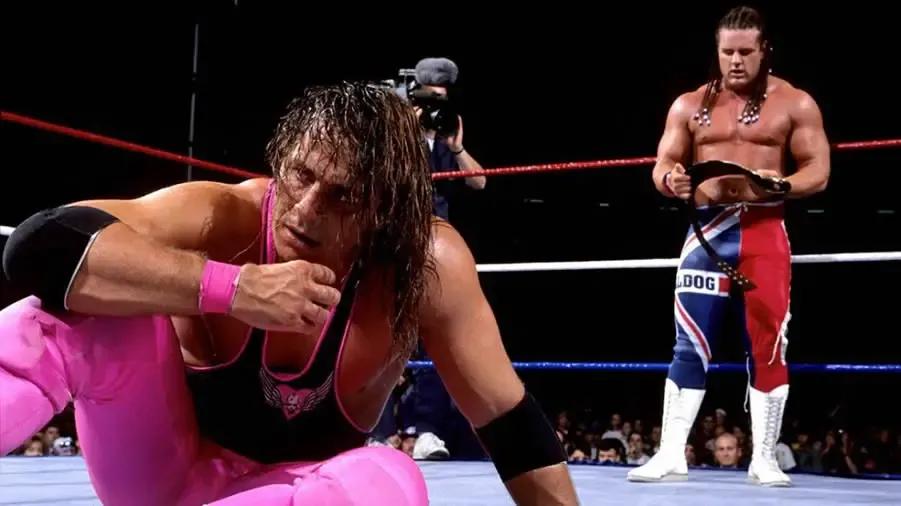10 Things We Learned From WWE SummerSlam 1992
The British Bulldog owed Bret Hart a beer after this one...

Jul 25, 2018
It's no surprise that the 1992 SummerSlam is considered one of the most memorable and beloved WWE events of all time. After all, how many major WWE pay-per-view productions have taken place in England? Yes, there've been a handful of UK-exclusive events like your Rebellions and your Insurrextions, but it's SummerSlam 1992 (along with the equally critically-acclaimed One Night Only) that gets the glory. When fans clamour for something like a WrestleMania to take place across the Atlantic, the success of the 1992 SummerSlam is what gets cited.
In a time where WWE was reeling from scandals and the ensuing consumer fallout, they managed to draw nearly 80,000 fans to London's Wembley Stadium, netting $2.2M at the box office and close to $1.5M in merchandise sales - both wildly impressive totals. More impressive was the event itself, always among the consensus picks for greatest SummerSlams in the event's 30-year history.
While the show itself boasts its share of good to great matches, it's the main event that everybody remembers most. The Intercontinental Championship match pitting Bret Hart against native hero Davey Boy Smith is considered one of the absolute greatest matches in WWE history, an emotionally-charged, beautifully-crafted masterpiece that has stood the test of time.
We at Cultaholic will examine that match among others as we look back at the time SummerSlam beamed to the world from jolly old England.

This would be like finding out that WrestleMania III was originally scheduled for the Five Seasons Center in Cedar Rapids, IA instead of the Pontiac Silverdome (which it wasn't, but just pretend). Before Vince McMahon made the decision to stuff the SummerSlam circus tent into an overhead baggage compartment for a cross-Atlantic excursion, he originally intended to hold the show stateside, in a much smaller venue.
The original SummerSlam 1992 location was the Capital Centre in Landover, MD, a suburb of Washington, DC that had been a longtime home for WWE action prior to its closing in 1999. The 1995 Survivor Series would be held inside that building, which seats a respectable 19,000 for sporting events. But when recent tours of Europe (particularly those in the fall of 1991 and spring of 1992) had proven highly lucrative, McMahon decided to take a chance on putting SummerSlam in London, especially as business was stagnating in the United States.

The London SummerSlam aired live on a Saturday night in the UK, while broadcasting on tape delay in the United States two nights later, in its then-normal time slot. That wasn't the only difference between the UK and US versions, as the United States broadcast was significantly shorter than what aired live for fans on the other side of the ocean.
In all, 11 matches took place in Wembley that night, but only eight of them aired on the tape-delayed broadcast in the States. Omitted from the American version were Tatanka vs. Berserker, Tito Santana vs. Papa Shango, and a six-man tag featuring Hacksaw Jim Duggan and The Bushwhackers taking on The Mountie and The Nasty Boys. All three of those bouts would actually be shown on Prime Time Wrestling throughout September 1992. Meanwhile, the UK version did not air the Crush vs. Repo Man match that took place in the middle of the show, for unclear reasons.

If you're the sort of WWE fan that will buy any piece of wrestling merchandise no matter how tacky or inane (and if you're not, what are you, stuck up?), you may have owned WrestleMania: The Album. Released in 1993, WrestleMania features 12 songs, all of which were sung by a cadre of WWE babyface stars of the time. Wanna hear Bret Hart reciting a love ballad, or listen to the pseudo-rap song that the WrestleMania theme from the mid-nineties was derived from? Think you'd enjoy a random astronomy lesson from The Macho Man himself? This is your bag right here.
Now, no doubt you're wondering what in the hell this has to do with SummerSlam 1992. The answer is simple: the album, which would be recorded in London, was dreamt up by a young music producer who saw the large crowd of 80,000 at Wembley Stadium and thought that wrestling was a big enough market to create a novelty album for. That young producer? Simon Cowell, who would later become much more famous telling young hopefuls that they have no right being involved in the music business. Oh, the irony.

While Shango's victory over WWE veteran Tito Santana (by now into his run as "El Matador") was little more than a minor footnote as far as wrestling history goes, the match would've been a little more significant had the original plans for the match gone through. Earlier that summer, it had been noted on WWE TV that Shango was to have faced 'The Texas Tornado' Kerry Von Erich at the supercard.
Von Erich's life had been spiralling rapidly in the previous year, as the charming but troubled ex-World Champion had lost his brother Chris in September 1991 (his fourth brother to precede him in death, the second via suicide), and was arrested in February 1992 for attempting to forge painkiller prescriptions. After a period of suspension, Von Erich continued working for WWE following WrestleMania VIII, before disappearing from the WWE scene altogether that July, thus scrapping the match. Von Erich would continue to wrestle sporadically until his February 1993 indictment on a probation violation related to his arrest. The day following the indictment, Von Erich himself committed suicide at the age of 33.

After a decade of destruction and dominance over the tag team circuits of every major wrestling promotion, Animal and Hawk would have a less-than-amicable split following the 1992 SummerSlam. Hawk had battled personal demons for some time, and had already been suspended twice for drug test failures in his two-year time with WWE. Animal didn't know at the time, but Hawk had failed yet another test before flying to London, and the team looked to be in dire straits.
Both Animal and Bret Hart recalled Hawk openly taking sedatives (identified by Hart as Placidyls) prior to LOD's match with Money Inc that night. Hawk was noticeably sluggish throughout the match, to the point where Animal says Vince McMahon shot him an irritated glare from ringside. When the wrestlers flew home from London, Hawk was not among them, staying behind in England where he would fall in with a local Hell's Angels chapter. That was the end of Hawk's WWE run, and he and Animal, with a rift between them, would not team again for more than three years.

You have to question why Nailz, a frightening ex-convict who violently attacked The Big Boss Man (citing excessive abuse whilst incarcerated), would still be wearing his prison jumpsuit while now a free man. Did he ask the warden, or even the desk clerk, if he could take it home with him? And if so, why would they agree to just give the jumpsuit away? So many burning questions, and so little tangible interest in whatever the answer may be.
Anywho, Nailz slaughtered Virgil in a thankfully-short match in the SummerSlam undercard, but that's not the only person he would slaughter. Little more than three months after the pay-per-view, Nailz physically assaulted Vince McMahon at a TV taping, during a loud argument over what Nailz thought was a low payoff for SummerSlam. Nailz reportedly made about $8000-$9000 for the show (for four minutes of actual in-ring work) and took umbrage, actually grabbing Vince by the throat and knocking him out of his chair. Needless to say, Nailz was fired.

When SummerSlam's location was switched from Landover to London, doing something monumental with Davey Boy Smith in front of a stadium full of his countrymen was a slam dunk. Bret Hart made the pitch to Vince that if the show were taking place in London, it would be a good idea for him to drop the IC title to his brother-in-law in what would most certainly be a classic battle, and an unforgettable moment.
The Bulldog was inserted into a spot originally designed for Shawn Michaels, who was being fast-tracked up the card as an arrogant villain. Had SummerSlam taken place in the DC metro area, Hart would have lost the belt to Michaels in what would likely have been a Ladder Match. Instead, Michaels got the belt via Smith at a Saturday Night's Main Event taping two months following the pay-per-view.

SummerSlam 1992 is most often lauded for its spectacular double main event, easily among the best WWE World/IC title combo packages for any pay-per-view ever. WWE Champion Randy Savage's non-finish with fellow babyface Ultimate Warrior, while the greatness of the Hart/Smith IC title bout has been beaten home plenty. It's somewhat hard to believe that less than three months later, both title challengers would be gone from the promotion.
On the same day in November 1992, about a week-and-a-half from that year's Survivor Series, both Warrior and Smith would be unceremoniously fired from the company. According to Bret Hart's memoirs, both men were found to have been receiving HGH from a supplier in England. With WWE facing heavy scrutiny in regards to drug use among the performers, McMahon had no choice but to terminate the employment of both men. The fact that both Warrior and Smith had co-headlined a monumental pay-per-view less than 90 days earlier makes their sudden exits all the more surreal.

It's easy to understand why Hart and Smith went on last - the obvious answer is that The British Bulldog's big triumph should be the closing scene, and the underlying answer is that 'who the hell was going to follow it?' The match marked the first time that the Intercontinental title match closed out a pay-per-view, and history would show that while it is a rare occurrence, it wouldn't be the last time.
The next time the IC belt would main event a pay-per-view in a scheduled singles match would be the infamous
we know how to count
match pitting Dolph Ziggler and Seth Rollins at Extreme Rules 2018. There are, however, three other times in which the title would be showcased in the finale: in winner-take-all tag team matches (In Your House III and Backlash 2001), and in unusual circumstances (the redone Goldust-Undertaker Casket Match from In Your House: Beware of Dog).

If you've seen the Hart/Bulldog IC title match, you know its greatness. You've read many accounts from others who back up the assertion that the match is a masterpiece. Usually, it takes two to tango, but in the case of this match, it was Bret doing almost all of the heavy lifting. That's because, per Hart's recollection and that of others, Bulldog wasn't in the best state of mind.
Bulldog had apparently not returned Hart's calls throughout the summer, and Hart didn't get a hold of him until the night before the show. When Hart confronted him, a sheepish Bulldog admitted that he had partaken in heavy drug use that summer with Jim Neidhart. Left to his own devices, Hart designed the entire match and helped Bulldog remember the details. Come match time, Bulldog admitted minutes in that he'd forgotten the entire plan. It was up to Hart, with assists from referee Joey Marella, to carry the match and to make sure Bulldog was in the right position to carry out each ensuing step. The fact that nobody could have guessed that from watching is a testament to just how remarkable a wrestler Bret Hart truly was.